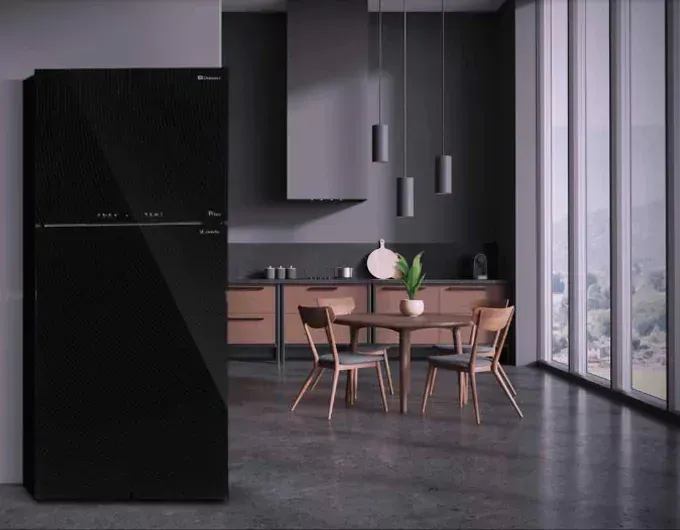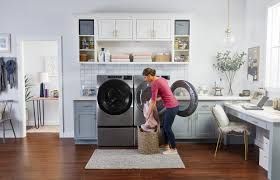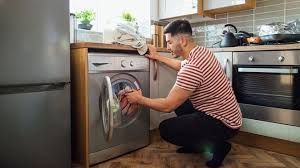The Essential Guide to Home Appliance Repair: Tips, Tricks, and When to Call the Pros
As the unsung heroes of our contemporary lives, home appliances toil away in the background to make our everyday chores easier. These appliances—from the reassuring hum of the refrigerator keeping our food fresh to the rhythmic swish of the washing machine cleaning our clothes—are the unsung heroes of everyday living. They simplify our daily lives and provide us valuable time to concentrate on the important things in life.
Even the most dependable appliances, however, are subject to wear and tear over time. The smooth operation of our home tasks might be disturbed by normal wear and tear, unavoidable glitches, and breakdowns. Understanding how to troubleshoot and fix our dependable appliances may be a useful skill, saving us money and time when they break down.
We explore the inner workings of home appliance repair and learn about the complexities of these indispensable devices in this thorough tutorial. We'll explore the secrets around the steady dishwasher that handles our post-meal cleanup and the steadfast refrigerator that preserves our perishables. You'll be able to handle the world of home appliance repair with assurance and effectiveness if you have insightful insights, useful advice, and professional help at your disposal.
Come learn the basics of maintaining your appliances so you can keep them humming cheerfully for years to come and your household operating smoothly.
Common Issues:
It's important to comprehend the typical problems that afflict home appliances before delving into repair methods. Among the most prevalent issues are the following:
- Defective Motors: Several appliances, such as dishwashers, dryers, and washing machines, are powered by motors. Motor wear and tear over time might result in diminished performance or outright failure.
- Clogged Vents and Filters: Appliances such as air conditioners, dryers, and refrigerators require airflow. Airflow is restricted by clogged filters and vents, which makes appliances work harder and use more energy.
- Leaking: Washing machines, dishwashers, and refrigerators frequently have leaks. Damage to hoses, seals, or other parts may result in leaks, which can cause water damage and sometimes even mold development.
- Electrical Issues: Malfunctioning or non-operational appliances may be caused by faulty wiring, blown fuses, or tripped circuit breakers.
- Strange Noises: Bearings that are worn out, loose parts, or foreign items stuck in moving parts are some of the reasons for unusual sounds coming from appliances.
Basic Repair Techniques:
Many appliance repairs may be handled with simple equipment and knowledge, but some require professional competence. The following basic repair methods are worth attempting:
- Clean and Maintain Often: Avoiding expensive problems requires prevention. As advised by the user handbook, give your appliances regular cleanings and carry out the necessary maintenance.
- Verify the power supply: If your appliance isn't functioning, make sure the plug is in correctly and that electricity is reaching it. Examine the fuse box or circuit breaker to rule out electrical problems.
- Clear Blocks in Filters and Vents: To maintain appropriate airflow and avoid overheating, periodically remove and clean filters and vents.
- Inspect Hoses and Seals: Look for wear or damage on hoses, seals, and gaskets to see whether there are any leaks. Any worn-out parts should be replaced right away.
- Lubricate Moving Parts: Enlarge the lifespan and minimize friction by lubricating moving parts, such as bearings and motors.
- Replace Worn-Out Parts: Use original manufacturer parts to swap out worn-out or damaged parts, such as belts, hoses, or seals.
- Take Safety Measures: Prior to beginning any repairs, always disconnect appliances, and heed the user manual's safety instructions.
When to Call the Pros:
Even while you may save money by doing repairs yourself, there are some problems that are better left to the experts. Think about contacting a specialist if:
- Safety Concerns: It is safest to seek the assistance of a competent expert if the repair requires working with electrical or gas lines.
- Complex Repairs: A typical homeowner might not have access to certain specialist tools, knowledge, or diagnostic equipment needed for some repairs.
- Protection under Warranty: Attempting do-it-yourself repairs on equipment covered by a warranty may violate its conditions. Before moving forward, speak with the warranty provider or the manufacturer.
- Time constraints: Hiring a professional may ensure the task is done correctly and spare you stress if you lack the time, patience, or confidence to handle a repair.
- Repeated Failures: If you attempt DIY fixes on your appliance but it still keeps breaking down, there may be an underlying issue that has to be professionally fixed.
Appliance Repair Knowledge
When it comes to fixing household appliances, knowledge is definitely power. When one is equipped with the correct knowledge, resources, and methodology, addressing common problems becomes not only possible but also liberating. Understanding the principles of appliance repair and knowing when to seek expert help vs doing things yourself can help you keep your home running smoothly and preserve the longevity of your beloved equipment.
Safety should always come first while doing repairs. Safety precautions should always come first, whether you're rewiring a circuit or tightening a loose bolt. Additionally, don't be afraid to seek the assistance of trained professionals when a repair operation seems beyond your area of competence or when time is of the essence.
Your appliances will obediently meet your home's demands for many years to come if you have a proactive attitude and are dedicated to routine maintenance. In order to create a more sustainable and effective home environment, embrace the adventure of home appliance repair and allow your newly acquired knowledge lead the way.
You might also like
Educational Center
Book a Service Today
We will get back to you as soon as possible
Please try again later
Quick & Reliable
We are available 24/7
About Us
Authorized Appliance is an appliance repair contractor referral service. We connect you with appliance contractor in your area. All contractors are operated independently of Authorized Appliance. It is the responsibility of each user to verify that the contractor connected with meets all licensing and insurance requirements in that jurisdiction.
All Rights Reserved - Authorized Appliance




